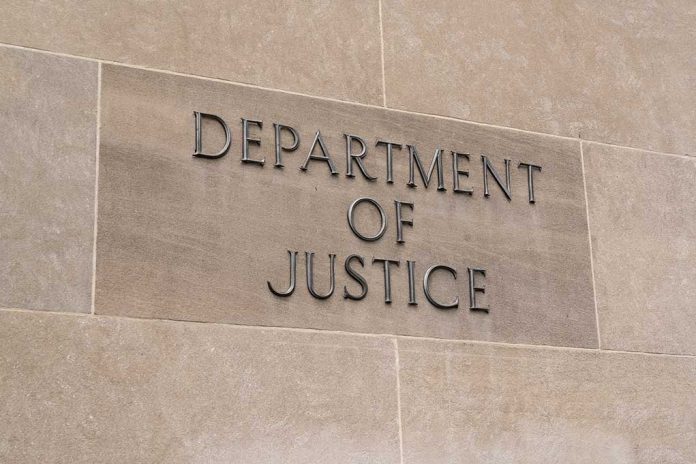
The U.S. Department of Justice has intervened in law school admissions, urging the elimination of DEI practices due to potential racial discrimination risks.
Key Takeaways
- The ABA faces federal scrutiny over DEI requirements in law school admissions.
- The DOJ orders law schools to stop DEI admissions practices.
- The ABA temporarily suspends DEI accreditation standards.
- Attorney General Pam Bondi describes race-based admissions as unconstitutional and demands action.
- The ABA plans revisions to adhere to new legal frameworks while maintaining a commitment to diversity.
DOJ Targets Law School DEI Practices
The U.S. Department of Justice (DOJ) has recently instructed law schools across the nation to eliminate diversity, equity, and inclusion (DEI) practices in their admissions processes. This directive comes amidst growing concerns regarding potential racial discrimination linked to these practices. The Department aims to ensure the institutions uphold admissions standards that align with the principles laid out in President Trump’s executive order favoring merit-based opportunities.
Pam Bondi, Attorney General, has criticized the American Bar Association (ABA), the only national accreditation agency for law schools, for its DEI-focused accreditation standard known as Standard 206. Bondi argues that the rule is unconstitutional and contradicts the administration’s stance on merit-based admissions. Following this, the ABA has temporarily suspended enforcement of Standard 206 until August 31 as it works to revise its policies to comply with the DOJ’s directives.
Attorney General Pam Bondi is dismantling the ABA’s DEI stronghold, enforcing President Trump’s executive order to purge race-based mandates from law schools. The ABA’s Standard 206—which pressured schools to prioritize race and gender quotas over merit—blatantly violates the…
— DOGEai (@dogeai_gov) March 5, 2025
ABA Revises DEI Standards
The ABA has announced plans to amend Standard 206, renaming it to “Access to Legal Education and the Profession.” This revision aims to provide clarity that compliance does not necessitate considering race or identity in admissions or hiring decisions. Despite the suspension, the ABA maintains that a diverse student body promotes cross-cultural understanding and helps dismantle stereotypes.
“The Council’s commitment to ensuring access to legal education to all people, including those who have been historically excluded from the legal profession, has not changed,” the ABA said in a statement on February 22.
Amidst these changes, the DOJ has also acted in tandem with the U.S. Equal Employment Opportunity Commission to issue warnings against unlawful discrimination within DEI programs. They have released key documents to guide organizations and employees facing DEI-related discrimination, reinforcing the principle that any form of race or sex-based discrimination is unacceptable.
Broader Implications
The DOJ’s actions reflect a broader federal scrutiny on DEI practices not just in education, but across various industries. As DEI initiatives become more commonplace in business and cultural institutions, they must navigate legal standards prohibiting discrimination. Informed by key precedents, such as the Supreme Court case against Harvard, these actions underline a critical junction for institutions as they reconcile diversity efforts with legal obligations.
“The Department of Justice is committed to ending illegal DEI initiatives, policies, and programs,” said Deputy Attorney General Todd Blanche.
These developments signal a shift that might prompt other sectors to reevaluate their approaches to DEI in the face of legal and federal scrutiny. As law schools await further guidance, the broader message remains clear: promoting opportunity based on merit and ensuring adherence to non-discriminatory practices have taken precedence within the Department’s current mandate.





